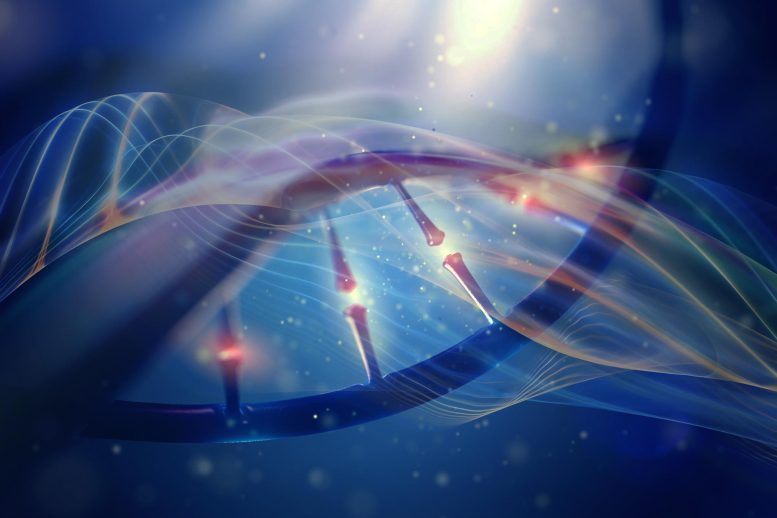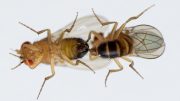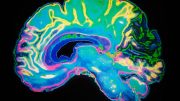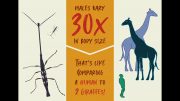
A new study reveals that masturbation, particularly in males, has a long evolutionary history among primates and plays a crucial role in increasing reproductive success and reducing the risk of STIs. Data assembled from various sources suggests that this behavior, prevalent in both captive and wild-living primates of both sexes, could have been present in the common ancestor of all monkeys and apes, while its significance in females needs further research.
Masturbation is a widespread phenomenon in the animal kingdom but is especially prevalent amongst primates, including humans. In the past, this activity was viewed as either pathological or a by-product of sexual arousal, and available studies were not cohesive enough to paint a clear picture of its distribution, evolutionary history, or adaptive significance. However, a new study recently published in the Proceedings of The Royal Society B proposes that this behavior might have evolutionary benefits.
The findings indicate that masturbation is an ancient trait in primates, and that – at least in males – it increases reproductive success and helps to avoid contracting sexually transmitted infections (STIs).
Dr. Matilda Brindle (UCL Anthropology) and colleagues assembled the largest-ever dataset of primate masturbation, collating information from nearly 400 sources, including 246 published academic papers, and 150 questionnaires and personal communications from primatologists and zookeepers. From these data, the authors tracked the distribution of autosexual behavior across primates, to understand when and why it evolved in both females and males.
The team found that masturbation has a long evolutionary history amongst primates and was most likely present in the common ancestor of all monkeys and apes (including humans). It was less clear whether the ancestor of the other primates (lemurs, lorises, and tarsiers) masturbated, largely because data were more scarce for these groups.
To understand why evolution would produce this seemingly non-functional trait, Dr. Brindle and colleagues tested several hypotheses.
The “postcopulatory selection hypothesis” proposes that masturbation aids successful fertilization. This can be achieved in various ways. First, masturbation (without ejaculation) can increase arousal before sex. This may be a particularly useful tactic for low-ranking males likely to be interrupted during copulation, by helping them to ejaculate faster. Second, masturbation (with ejaculation) allows males to shed inferior semen, leaving fresh, high-quality sperm available for mating, which is more likely to outcompete those of other males. The researchers found support for this hypothesis, showing that male masturbation has co-evolved with multi-male mating systems where male-male competition is high.
The “pathogen avoidance hypothesis” proposes that male masturbation reduces the chance of contracting an STI after copulation, by cleansing the urethra (a primary site of infection for many STIs) with ejaculate attained via masturbation. The team also found evidence in support of this hypothesis, showing that male masturbation co-evolved with high STI load across the primate tree of life.
The significance of female masturbation remains less clear. While frequent, there are fewer reports describing it, which diminishes the analytical power of statistics. The team argues that more data on female sexual behavior are needed to better understand the evolutionary role of female masturbation.
Lead researcher Dr. Brindle said: “Our findings help shed light on a very common, but little understood, sexual behavior and represent a significant advance in our understanding of the functions of masturbation. The fact that autosexual behavior may serve an adaptive function, is ubiquitous throughout the primate order, and is practiced by captive and wild-living members of both sexes, demonstrates that masturbation is part of a repertoire of healthy sexual behaviors.”
Reference: “The evolution of masturbation is associated with postcopulatory selection and pathogen avoidance in primates” by Matilda Brindle, Henry Ferguson-Gow, Joseph Williamson, Ruth Thomsen and Volker Sommer, 7 June 2023, Proceedings of the Royal Society B Biological Sciences.
DOI: 10.1098/rspb.2023.0061
The study, supported by the Natural Environment Research Council, involved researchers in UCL Anthropology, the UCL Centre for Biodiversity & Environment Research, and Queen Mary University of London.









“The team argues that more data on female sexual behavior are needed to better understand the evolutionary role of female masturbation.”
I volunteer to collect this information and help advance science.
When did they satrt covering the Ignoble Prizes here?